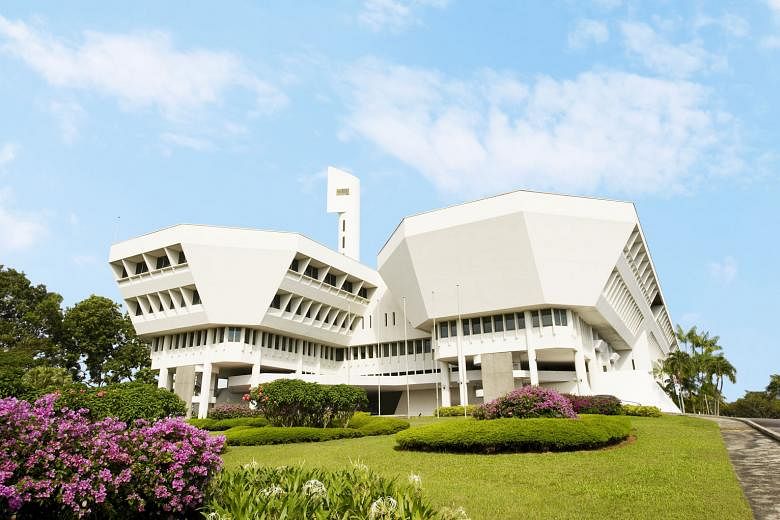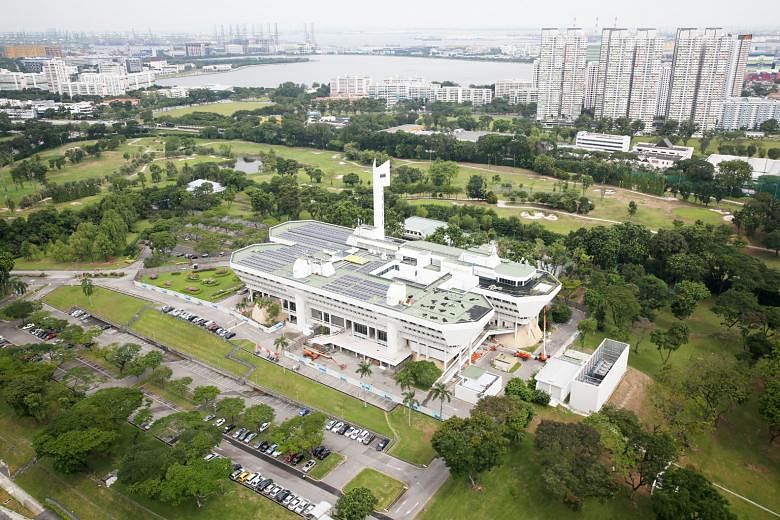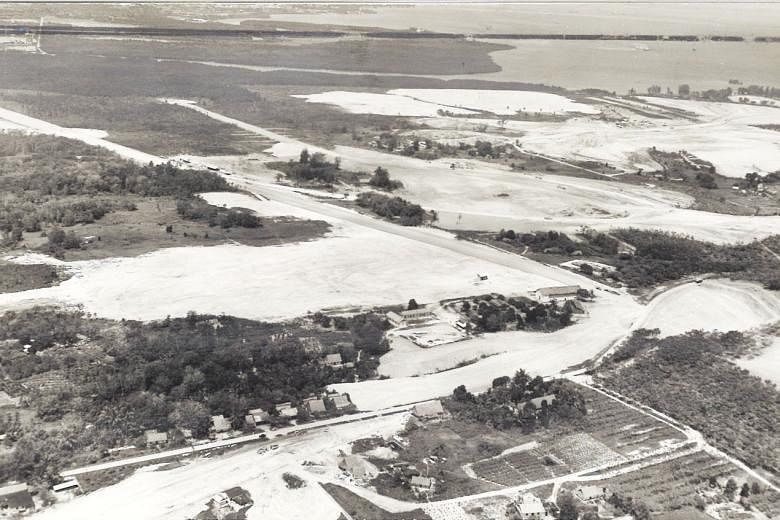In 1976, Mr Roland Ng San Tiong started working life as a civil engineer for the Jurong Town Corporation (JTC), then just an eight- year-old outfit.
For three years, the young professional worked at the imposing white concrete building, the Jurong Town Hall, which dominated the landscape around it.
Today, Mr Ng, 64, is a veteran businessman. The managing director and group chief executive of crane supplier Tat Hong Holdings is also president of the 59th council of the Singapore Chinese Chamber of Commerce and Industry (SCCCI) .
He is also back at the Jurong Town Hall, which he left nearly 40 years ago, now that it has been revamped into a hub for trade associations. The SCCCI is one of the 12 that have taken up residence there so far.
Mr Ng credits the JTC's former headquarters as a launching pad that ignited his entrepreneurial knack and sense for business.
"We learnt a lot, since as young engineers, we had the opportunity to design some projects, supervise them, call the tender and make progress payments before handing them over to the client.
"We could learn the entire process, so this place managed to produce a lot of good entrepreneurs," he recalls.
As part of the early independent city state's push towards industrialisation, JTC was officially formed in June 1968 to develop Jurong's industrial, residential and recreational facilities.
In 1969, plans were under way to build its headquarters. JTC wanted a building that was "a landmark symbolising Jurong Town and will be remembered for posterity".
Completed in March 1974, the 27,000 sq m white-washed compound stood out starkly against a backdrop of lush vegetation, and fish and prawn farms in the early 1970s .
The five-storey building, which cost about US$3 million (S$4.2 million at current rates) to build, was also home to one of the largest clock towers in South-east Asia at that time.
Dr Chang Jiat Hwee, 44, an assistant professor in the department of architecture at the National University of Singapore, said: "JTC did commission for the existence of a clock tower in its original design."
He added, tongue-in-cheek: "Perhaps it was a subtle hint in making the workers aware of the notion of time and productivity."
True to its name, the iconic and imposing structure was a formidable sight to behold.
Ms Chen Lee Wa, 59, who has worked at JTC Corporation, as it is now known, for more than three decades, reminisces about the lasting impression the seemingly impregnable fortress left on her.
"The first time I came here it was for an interview... When I drove up the hill to get here, I was surprised, pleasantly surprised... It had that kind of awe-inspiring grandeur to it," said the deputy director in the innovative space division of JTC Corporation.
JTC called the modernist building that overlooked the Jurong estate home till 2000.
For 26 years, bonds were formed as colleagues relaxed over snacks amid the green surroundings.
A principle executive who has worked at JTC Corporation for the past 40 years remembers: "My colleagues and I would take plain blank paper and lay it on the grass under the shady trees during lunch time and have a rest and chit chat or have a little picnic."
"I'm still in contact with old colleagues who have left," said Ms Sereena Joy Osman, 59, who joined JTC in 1977 as a stenographer.
"We still meet for tea or coffee or sometimes go for a swim."
A figure that was central to Jurong Town Hall was a tea lady affectionately known as Ah Fong.
Ah Fong, according to long-time staff, would go round the town hall twice a day with a push cart loaded with snacks.
"She would push the cart to the atrium, and then she would shout and everybody would gather there and buy snacks from her. We didn't mind the queue. We would just stand around with our snacks and chit chat," said Ms Chen.
Beyond everyday teas, the town hall also played host to various foreign dignitaries and delegates over its 43-year-old existence .
Mr Deng Xiaoping, then senior vice-premier of China, visited it on his first and only official trip to Singapore in 1978.
In 2000, JTC relocated to its new premises at the JTC Summit and the vacant town hall was renamed iHUB in 2004, serving as office space for local technology start-up companies for the next decade.
After a period of upgrading that began early last year, the Jurong Town Hall is slated to officially reopen towards the end of this year as home to more than 25 trade associations across various industries.
The reopening represents a homecoming of sorts for Mr Ng.
"I've been very fortunate... This is the place where I first started work and now as the president of the SCCCI, I'm back to this place again. This is a very memorable place for me," he added.



